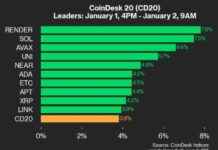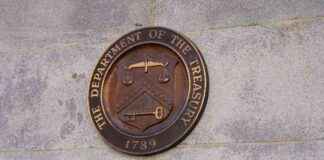Gold prices have been on a downward trend while Bitcoin has been flourishing ever since the US presidential election. This has led many in the industry to anticipate a significant shift towards crypto assets in the near future.
Following the release of the US Consumer Price Index report, which indicated an inflation rate of 2.6% in October, the price of gold dropped to a one-month low of $2,543 on Nov. 14. Despite a recent increase to $2,623, gold is still down by 2.6% over the last 30 days. On the contrary, Bitcoin surged to an all-time high of over $93,400 shortly after the CPI data was made public.
In light of these developments, Maruf Yusupov, co-founder of the gold-backed stablecoin Deenar, has expressed his belief that there will be a noticeable shift in the attractiveness of gold due to Donald Trump’s focus on taxes, tariffs, and cryptocurrency. He suggests that the spotlight on Bitcoin could diminish gold’s dominance as an inflation hedge, leading investors to redirect their funds towards Bitcoin and potentially triggering a rapid rally for the digital currency.
Yusupov also points out that the Federal Reserve’s hawkish stance, which includes raising interest rates, could bring economic indicators back to a more favorable position. However, this could also reduce the appeal of gold as an investment option. In light of these factors, he predicts that investors seeking to diversify their portfolios may opt for Bitcoin instead, attracted by its relatively higher yield.
Looking ahead, Yusupov warns that a strengthening US dollar could pose a long-term threat to gold, rendering the need for gold or other traditional hedges unnecessary. This sentiment is echoed by Republican US Senator Cynthia Lummis, who recently proposed selling some of the Federal Reserve’s gold reserves to acquire Bitcoin for the national reserve. As of Q2 2024, the US reportedly held 8,133 tons of gold reserves, according to data from Gold.org.
Overall, the evolving landscape of financial markets, coupled with changing geopolitical dynamics and the rise of digital assets like Bitcoin, is reshaping the traditional notions of investment and wealth preservation. It remains to be seen how these trends will impact the future of gold and other traditional safe-haven assets in the years to come.


















